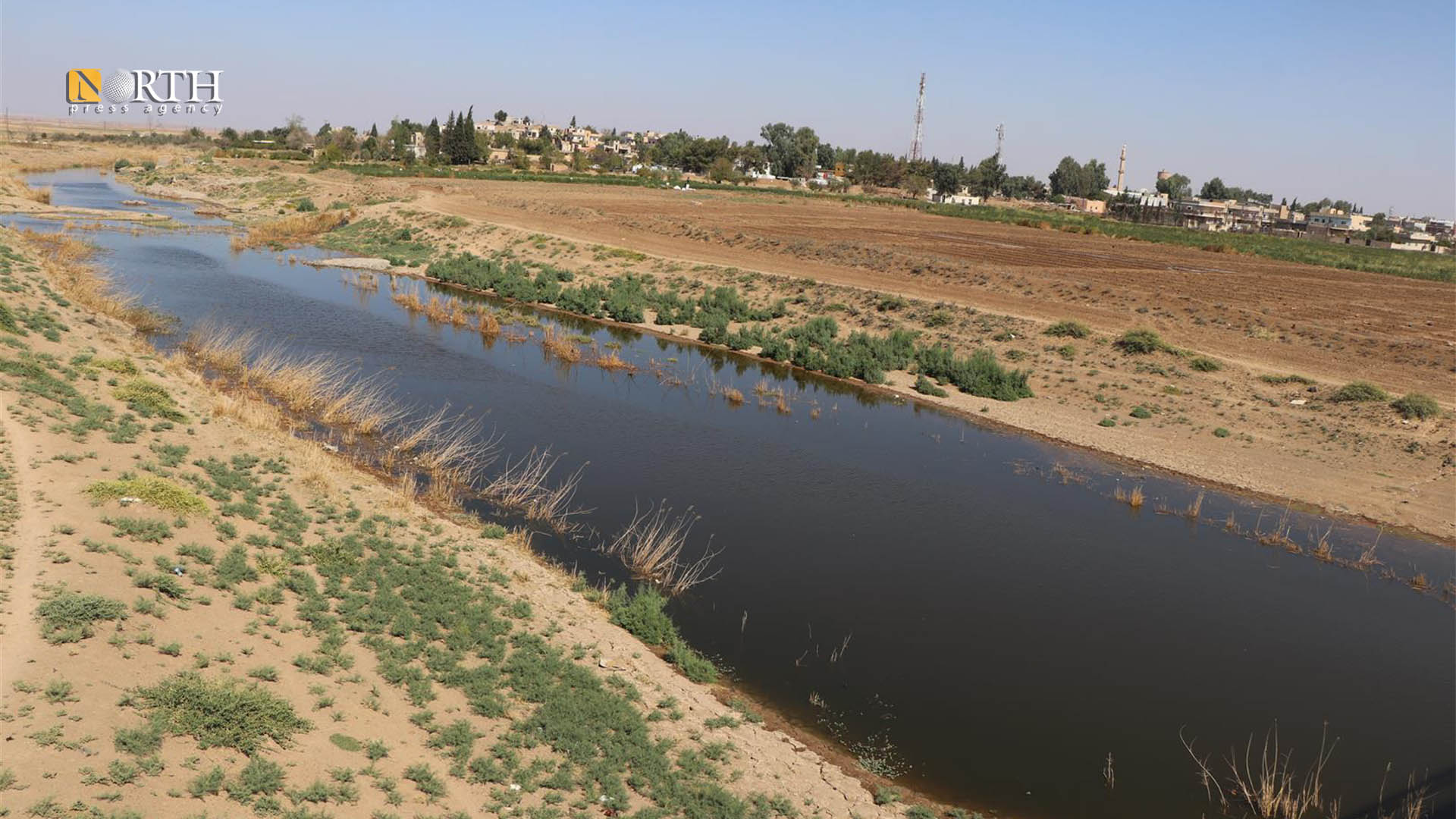TEL TAMR, Syria (North Press) – On the banks of the al-Khabour River near the town of Tel Tamr, northeastern Syria, the farmer Omar al-Ali, is busy with maintaining the water pump in preparation for watering his barley field, after the river’s water has returned to flow.
In the past few days, the water of al-Khabur flowed again after about six years of cutting off its water by Turkey, forcing farmers to rely on rainwater that was gathering in the river basin during the rainy seasons.
However, the lack of rain during the last season caused the river to dry up completely, which led to great losses in agricultural crops.
The length of the al-Khabour River is 320 km. It originates in Turkey and enters the Syrian territory at the city of Sere Kaniye (Ras al-Ain), passing through Hasakah, then it merges with the Jaqjaq River to flow into the Euphrates near the city of al-Mayadin in Deir ez-Zor, and then enters Iraqi territory.
Al-Khabour flow was too late
Al-Ali said that the al-Khabur water was too late, after the damage of the cotton season due to water shortage and thirst.
“Also we did not benefit from al-Khabour water during the wheat season,” he added.
Local residents and farmers in the Tel Tamr area believe that the river’s recent flow is due to two possibilities, the first is due to the collapse of the berms established by Turkey and the Turkish-backed armed factions, near the villages of al-Manajir, Tel Jahash and al-Arisha, southeast of Sere Kaniye (Ras al-Ain), to prevent water from reaching the Autonomous Administration regions.
While others argue that this is due to the flow of excess water from the process of watering yellow maize by farmers in areas held by armed factions on the banks of Zirgan River, which in turn flows from Turkish lands near the town of Abu Rasin in the countryside of Derbasiya, to eventually flow into al-Khabour near Tel Tamr.
“If the water flow continues we can benefit from it for the winter season like wheat and barley, but if it stops again we will not benefit from it,” al-Ali added.
“But it seems like it will get dry, as starting from yesterday to this morning the water level has dropped about one meter, I do not think that the water flow will continue like that,” he said.
The farmer expected the water to continue at this rate until the next season’s crops are planted, if the water is not continuously pumped into the river.
Economy declined
Al-Khabur River is one of the important sources that farmers depend on in the Hasakah region all the way to Deir ez-Zor on the Iraqi border, and therefore it directly affects the agricultural economy of this region.
According to the farmers, the rate of incoming water has risen to about five meters in the past few days, but it has gradually decreased again.
The farmer Hussein Sheikh, whose land is located on the banks of the al-Khabour in the countryside of Tel Tamr, said that the drought of the river has greatly affected the reality of agriculture in the region, and led to the local population’s living and economic difficulty.
Due to the drought, most farmers were forced to rely on sewage water that flows into the river to water their crops, despite its bad effects.
“The crops did not grow well, they were all thirsty, and it did not produce anything during the last season,” Sheikh said.
“We have two shallow potholes, one on the river and the other on the sanitation, for watering our crops. Sometimes we benefit from them and sometimes not,” he added.
The cotton production of this year hardly reached 200 kg per acre, in contrast to previous years, when the production was up to 500 kg.
“Our cotton production reached 150 kg, but in the past years it was 500 kg . So 150 or 200 kg is considered bad season, it was affected by water shortage to 50%.”

